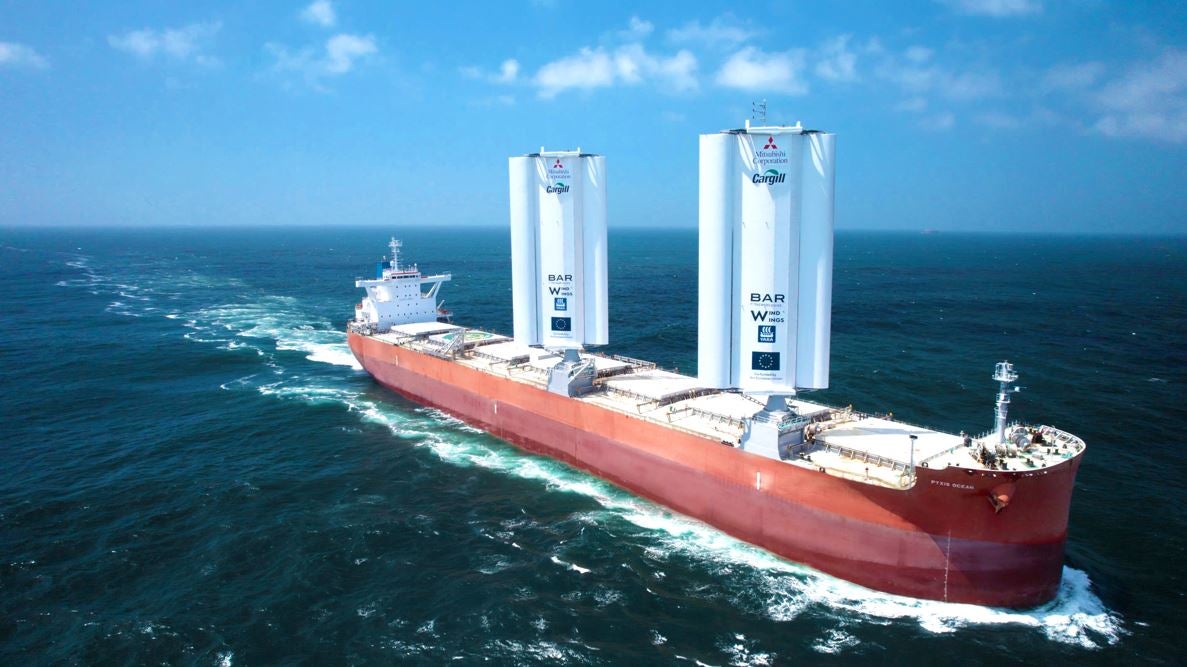
US shipping magnate Cargill has announced the maiden voyage of its new wind-propelled cargo shipping vessel is underway.
Mitsubishi’s Pyxis Ocean, a vessel chartered by Cargill, is the first in the world to be retrofitted with a pair of WindWings, Cargill and BAR Technologies’ wind propulsion innovation.
WindWings are large metal sails affixed to the decks of cargo ships that can utilise wind power to assist in the propulsion of the vessel.
Cargill estimates that a fuel saving of as much as 30% can be achieved on new vessels utilising the wings, which measure up to 37.7m in height. On an average global route, this saves 1.5t of fuel a day.
Cargill ocean transportation president Jan Dieleman stated: “At Cargill, we have a responsibility to pioneer decarbonising solutions across all our supply chains to meet our customer’s needs and the needs of the planet.”
Cargill added that the stated 30% fuel saving could be even greater if WindWing usage is combined with the burning of alternative fuels such as biofuels or ammonia.
Yara Marine Technologies, which produced the WindWings, signed an MoU in June through its Yara Clean Ammonia for the development of ammonia as a shipping fuel.
In November 2022, new rules from the International Maritime Organisation regarding carbon intensity came into effect. Ships must now measure and calculate their energy efficiency and report their carbon intensity indicator (CII) values.
Based on the CII, ships may be awarded incentives or conversely be punished for repeated years of low CII values. Being inherently zero-carbon, WindWings can aid maritime transport companies in complying with these new rules.
The WindWing project was partially funded by a European Union grant. The Horizon 2020 research and innovation funding programme granted a total of €68.3bn ($74.4bn) of funding to more than 36,000 participants between 2014 and 2020.



